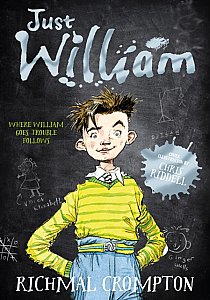Importance of Reading for the 11 Plus
Regardless of the form that the 11 Plus takes in your area, there will be some content that tests a child’s vocabulary and – to a slightly lesser extent – spelling ability. This might be a Verbal Reasoning paper or an English paper.
The key to helping your child to develop the wide vocabulary needed for these papers is reading, and it is the one area of preparation for the 11+ that can be started from any age without fear of causing stress or anxiety for a child.
Encourage your child to read for at least 20 minutes each day, of which 10 minutes should be reading out loud to a parent or other adult. (If you have teenagers in your family they can also listen to a younger child read sometimes.) Your child should learn to say to you each time they come across a new or unfamiliar word so that you can explain the meaning to them. Children will often skip an unfamiliar word because they can simply guess at the meaning from the context of the sentence or paragraph. Unfortunately their guess may not always be correct, and it is essential that they build up as large a bank as possible of accurate vocabulary in the years prior to taking the Eleven Plus.
What your child should read
Clearly the simple answer to this is “anything they can be persuaded to, and as often as possible”. Any reading is better than no reading, but if your child is a moderately keen reader you can take a few steps to improve their vocabulary.
The first thing is to encourage them to read work by a variety of authors. Prolific authors such as Enid Blyton or Jacqueline Wilson will tend to use similar vocabulary when writing, so a diet of reading books by only one author will not widen your child’s vocabulary after a certain point.
The second point is one that is often overlooked by parents who are simply grateful that their child is reading anything at all, and that is to encourage a child’s interest in reading books from different eras. Many 11+ English papers feature extracts from classic texts (Essex is a particular case in point) such as Dickens or Thomas Hardy. The language used in the extracts can be a real shock to children who have only read books published in the last 25 years. An excellent example was cited by our Forum moderator “Patricia”, who analyzed 5 pages at random from “The Diary of a Young Girl” by Anne Frank. These were the words that she found on them:
Sun., 14 June 1942:
| enhance | emigrate | Montessori | ardent | blithely | incurable |
| inventiveness | verse | fanatic | indefinite | superfluous | veranda |
| satchel | chattel | linoleum | annex | agitation | pique |
| monotonous | obstinate | cardigan | smuggle | umpteenth | bicker |
| barbarism | tongue-tied | fishwife | precaution | impoverish | Gestapo |
| prominent | saboteur | vile | convey | squabble | gnaw |
| condemn | florin | congenial | charwoman | vermin | wretched |
| attribute | inflammation | disinfectant | incoherent | disposition |
Wed.,13 Jan. 1943:
| rucksack | deprive | wage | clogs | dejected | mocking | rebuke |
| venom | lavatory | scamper | emancipation | jittery | chamomile | distort |
| aloof | ventilate | fray | siege | drizzle | barrage | smolder |
| tumult | pedantic | coquettish | portfolio | capitulation | perturbed |
Mon. evening, 8 Nov. 1943:
| palpitation | impenetrable | inflammable | lozenge | brimful | patronage | manifest |
| diligent | ironically | reproach | disheartened | witticism | hoity-toity | obliging |
| intuition | privation | wrestle | forthcoming |
Wed.,15 March 1944:
| reign | incessant | exempt | prudish | infinite | precarious |
| quell | suppress | inaccessible |
Mon., 8 May 1944:
| topsy-turvy | capitulation | blubbering | embody | exuberant | supercilious | peevish |
Even when a child is not required to take an English test for the 11+, words such as those above can appear on a Verbal Reasoning paper, and the vocabulary used on Verbal Reasoning papers tends be very traditional – or in some people’s view, old-fashioned. As many of the authors writing practice papers are also teachers who will have seen the real test papers, they will use vocabulary that is as close as possible to the standard of the real tests.
If your child is initially not keen to read beyond their comfort zone, consider using Audio CDs (as recommended below for reluctant readers) to introduce them to a new genre of books.
The Reluctant Reader
Parents often worry that their child is not reading enough, or reading books of sufficiently high quality. Although it may be ideal for children to read classic stories and books that stretch their vocabulary, if your child is a reluctant reader there is no point in trying to get them to read Junior Shakespeare. Any reading material is better then none – even comics – and you should not worry if it doesn’t seem to be as challenging as perhaps you would like. Allow your child to choose any reading material that excites their imagination and appeals to them because it will help to develop the all-important habit of reading regularly. Shakespeare can wait!
For a very reluctant reader, audio books can be an excellent starting point to capture their imagination. All libraries will have a selection of these or you may have access to free books via a cloud service, and the selection will change regularly. Use the library to “try before you buy”, and if your child particularly enjoys an individual title, you could then consider buying a copy. A useful tip is to borrow both the Audio book and the book itself, and let your child follow the text while listening to the book at the same time. You can even try playing a game of “spot the errors” in the audio book, because they are not always 100 percent accurate. A small reward or treat for every error found will encourage active reading.









